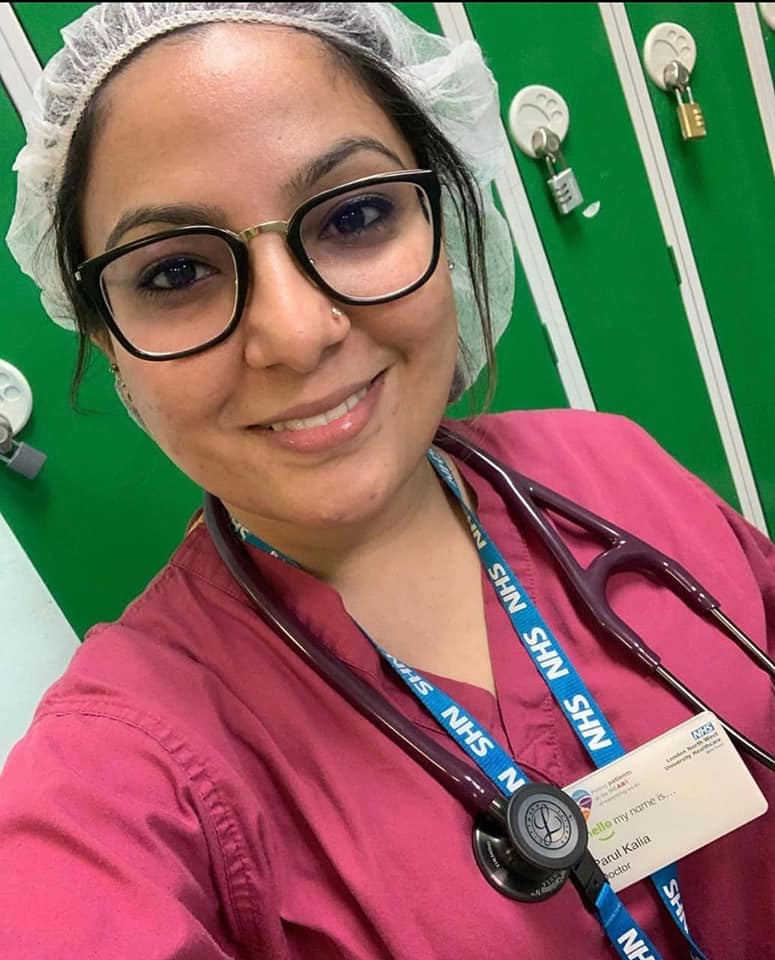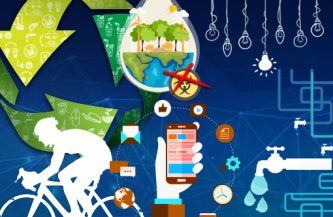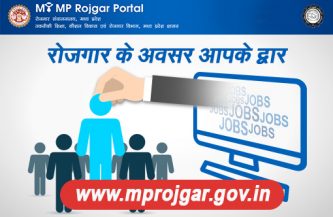Meet Dr. Parul, the Indian Doctor in London who fought a virus bigger than Covid-19

Dr Parul, a physician working in London came back to India in the second week of March, along with her mother. She landed in Delhi to reach Chandigarh. Meanwhile, I developed a fever on the way. Since being herself a doctor, intuitively, she sensed that this could be COVID-19 and went straight to the hospital. The hospital hadn’t handled any positive case of COVID-19 yet, and these were early times of the pandemic in India. So, the doctors were extremely skeptical. But they finally relented and admitted her at their quarantine center.
And then, Dr Parul narrates the journey in her own words-
“When the results for her COVID test came two days later, the doctors were doubtful about my reaction. I told them not to worry since I’m a doctor myself. I knew that I could handle whatever the situation might be. That’s when they revealed that I was COVID-19 positive.”
But Dr Parul wasn’t prepared for what lay in store for her family!
“As soon as the news spread, many of our neighbours panicked. The city administration council put up posters outside our door. People clicked photos and shot videos of my house. They shared it with my name, address, and personal details on different WhatsApp groups. Since people love to gossip on WhatsApp, ugly stories about me started circulating in social media. Even the news media put out the wrong kinds of stories. Despite going straight to the hospital from the airport, I had to be the victim of social media hatred. I didn’t even go home to collect my personal belongings to make sure that I didn’t transmit the virus to anyone.
While all this was happening at home, my health deteriorated. I had severe chest pain, diarrhoea and stomach pain by the eighth day of treatment. My confidence in my recovery waned, and I even told my parents to be prepared that I might not come back. Those were the darkest days of my life. One day I got so unwell that I slept for 18 hours straight. My parents were unable to reach me on the phone, and I wasn’t responding to doctors’ and nurses’ calls. So, few doctors put on their PPE kits and came into my room to check if I was alive!”
Dr Parul recounts some of the most stressful moments of her experiences.
“Thankfully, I started recovering and, after a few days, tested negative. But the hounding didn’t stop after I was back home. I knew that going back home would be an unpleasant experience. Therefore, to avoid attention from neighbours and the media, I insisted on going home late at night. Not just me but my entire family had to experience the harassment. My younger brother didn’t step out of the house for two months. Neither did I. I would only step out during the night to avoid people.

What helped me and continues to help me endure is the support I get from my family, friends, and even strangers. There were many instances when people went beyond their circumstances to help me. Nurses in my hospital shared fruits that they had brought for themselves since I wasn’t getting any due to lockdown. Towards the latter part of my admission, the nurses offered to play online mobile games with me during their off time, to keep me in good spirits during the isolation. A family friend got a shop open in the night to buy me new clothes since I didn’t take any with me to the quarantine center. The consultant at the hospital took care of even small things like soap and shampoo during my quarantine.
I understand that when I contracted COVID-19, those were the early days of the pandemic in India. So, I knew the fear and panic was coming from lack of experience. But now it is time to educate and sensitize ourselves. Our country is not behind other countries in hospital facilities, qualified health care professionals, or technology. But we do lack emotional sensitivity; not only towards patients but also towards key workers like healthcare professionals, police, sanitary workers and many more. We should not wait till someone in our family becomes COVID-19 positive to be sensitive to those who are unfortunate to have contracted COVID-19.
The only way we can fight this pandemic is with the right balance of precaution and empathy. Yes, we need to be careful. But we also shouldn’t let our fears overpower humanity within us. That’s why educating our society about this disease is critical. And that’s what I am doing these days. I talk to as many people as possible and counsel them about the condition. I am on call most of the day, and I keep telling people the same thing. Don’t panic. Just help each other out. That’s the only way to overcome this pandemic – “सबका सात तोह बनेगी बात।”





